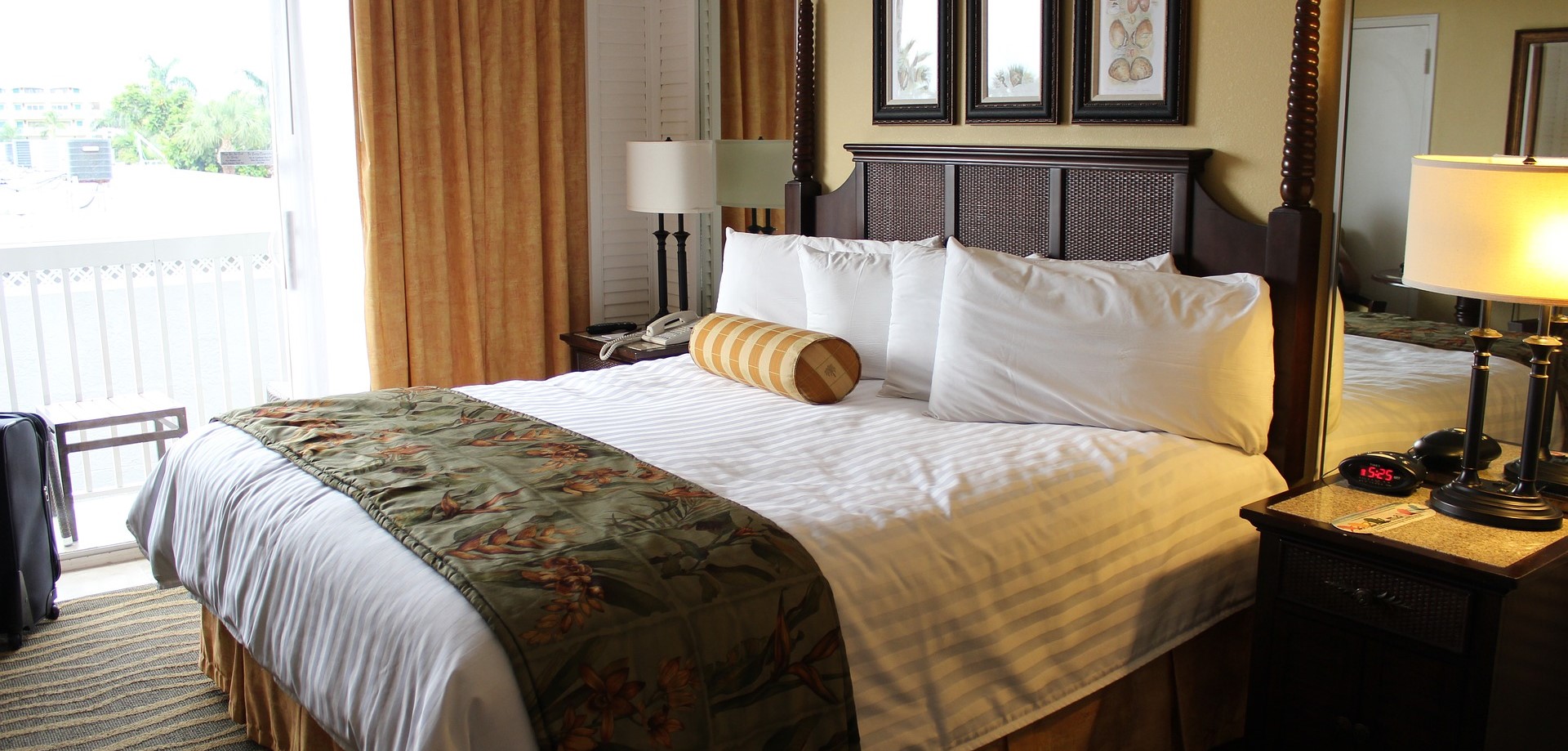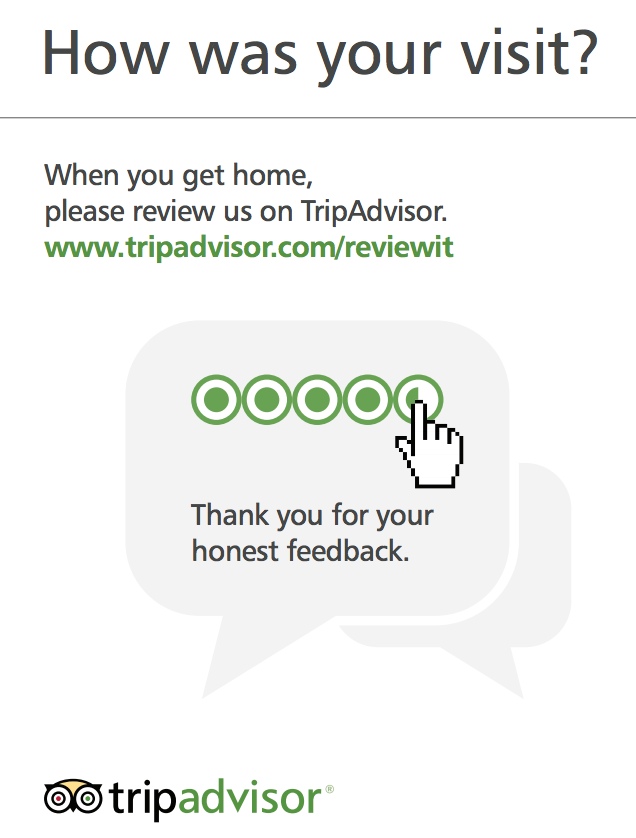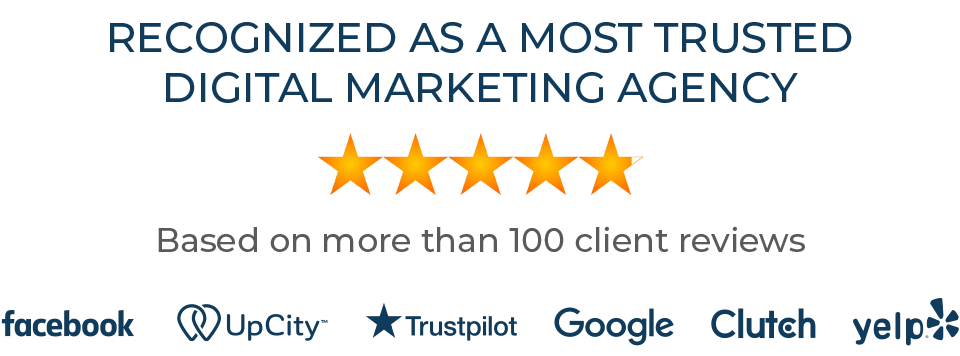The moments that matter to travelers have always been the same. Family vacations, destination weddings, and spur-of-the-moment getaways to sandy beaches. What’s changed in recent years, is the way that travelers are researching and planning these trips – all because of the mobile device.
With today’s mobile first (or mobile only) world, hotels especially need to get in front of travelers in more digital ways. Continuing in our top 10 series, today we will discuss the top 10 digital marketing strategies for hotels.

A Responsive website
We have to start here. The fact is that the world has gone mobile, and you know this already. Heck, you’re likely reading this on some type of hand held device.
Because of this fact, you have to be able to engage visitors where they are already spending their time, and better yet, you need to provide them with a valuable and easy experience when they arrive at your website.
Consider this: 87% of smartphone users are turning to search on their phone first when looking for a product or service from a local provider.
Once you capture a users attention, you have to be able to convert that user, and engage with that user.
A responsive website design is a huge part of this, and and a crucial first step for you to take, if you haven’t already. This type of design will adjust based on the screen size of the device that a visitor is using.
No matter how good the content on your website may be, there’ll be no trips booked in your future if your potential guest can’t figure out how to navigate your website.
If you’re unsure if your website is currently mobile responsive, use Google’s free tool, here.

Social Media & Targeting
Not only will social media help drive relevant traffic to your website, but it provides search benefits and useful information for current and potential guests – IF you are using it correctly.
Since social media is more often than not part of awareness, it’s the hotel’s job to provide content that is compelling enough to spark an interest within potential guests that leave them wanting to learn more.
Share information on your social channels about the local events and attractions, or abut the activities that guests can expect when they come to stay at your hotel. Use beautiful and rich photos of your property and surrounding areas to show the types of views a guest will see when they arrive. All of this paints a picture that a traveler is looking for during their micro moments.
With Facebook especially, the targeting capabilities are far and wide. Use it to reach directly to potential visitors based on their likes and dislikes, or even their recent web history. Here’s a great walk through on setting up Facebook targeting based on recent web history.
Extra Tip: Think, review, and review again before you make a social media post or comment. The ability to easily take screenshots makes it difficult to take back a social media mistake.
Remarketing
This one goes hand in hand with others, like email marketing and social media strategies, but remarketing to previous leads using Facebook is a fantastic way to put your practice back in front of an audience that you already know has expressed interest in you.
One option for this is to use your email lists to create a custom audience. Then target those previous guests with ads reminding them of how much they enjoyed their time at your hotel.
In addition, you could target friends of those in your custom audience list, opening up a whole new wave of potential guests for your hotel. Here’s a walk through of the process for creating a custom audience in your Facebook Ads Manager.
Related: Remarketing Tactics Without Being a Creeper
Pay-Per-Click
Paid search is such a fundamental step to any digital marketing strategy for a very simple reason – when people are using a search engine they are further along in the buying process than someone who is just browsing the web and sees a native (in-content) advertisement.
Hotel marketers and owners simply cannot overlook or ignore PPC. Unscrupulous marketing “experts” love to trash PPC as a waste of funds. You should run from those who advise using search engine optimization (SEO) as a replacement for PPC. SEO is important, but only PPC can explicitly guarantee you placement in exchange for your investment. Every time someone starts talking about how they are not doing pay per click marketing because they are focusing on SEO, an angel in revenue heaven dies.
Google’s ad based platform can be extremely lucrative if managed properly. But, anyone can throw money at Adwords to get ad clicks. It takes some skills to create webpages that will convert your clicks into guests. For more information, chat with us or read more about creating a PPC campaign that converts traffic to clients.
Increase Local WOM
Word of mouth is no longer limited to someone passing names to their next door neighbor. Americans have proven that they trust online reviews as much as they would a personal friend giving them the same recommendation.
For hotels, online reviews are ALWAYS an important factor that potential visitors will take into account. From TripAdvisor to Yelp, Expedia to Google and everything in between – You need to have a solid backlog of satisfied guests lining up to tell the world that your hotel is the best experience they could have asked for.
So how can you increase your reviews online, and where?
Google Reviews
Google is undoubtedly the king of the online reviews. When people search for your business, sure they’ll see other outlets like Yellow Pages and Yelp, but they’ll initially (and prominently) see your Google review rating.
Use the tool here to create a custom link that directs users directly to your Google Review page, where they can quickly and easily leave your practice a positive review.
Facebook Reviews
By simply adding ‘reviews’ to the end of the URL, you’ll have a direct link to your Facebook page reviews. So your new link will look like this, but with your page information:
https://www.facebook.com/yourfacebooklink/reviews/
This will open directly into a Review Box for visitors, immediately asking them to leave their review
 TripAdvisor Reviews
TripAdvisor Reviews
TripAdvisor is such a well-established online travel research site that hotel owners should just assume customers will consult it before booking. Improving customer experience and conversions are the main purpose of user reviews, but don’t forget the considerable SEO benefits of fresh, unique content for search engines to index. Search engine spiders like unique content that is regularly updated, and user reviews serve this purpose as well as they serve to endorse my business.
If you’re a new hotel, or haven’t claimed your hotel on TripAdvisor, you can claim your business here.
Set Up Google Alerts
Google Alerts notify you when your hotel name (or other designated keyword term) appears in a new piece of content on the web! This makes it easy to keep tabs on who is talking about you and your accolades.
If your hotel is mentioned on a travelers blog, that’s great press to share. And, alternatively, if your hotel gets mentioned in a negative way, that’s something you want to be notified of immediately.
Here’s a great walk through on setting up Google Alerts.
Search Engine Optimization
At the end of the day, being on page one of Google or Bing is the best way to reach more of your local community.
There are a number of factors that go into SEO for the travel industry field, but two items are extremely important.
And, if you are a startup or willing to commit the time yourself, you can attempt to work through these yourself.
Content Content Content
Content is king. Google has made it clear that they are promoting websites that provide high quality, informational content to their users.
Directory Listings
Since the inter webs began to form, directory listings have been an intricate part of small business marketing. There are thousands of directory listing websites for small businesses, and you’ll want to be listed on as manany as possible. It takes time and a little concentration to ensure you are listing your business consistently across all platforms, but it can be done. For a breakdown of some of the most important directory listing websites, click here.
Video Marketing
Last year, U.S. adults watched an average of 1 hour and 16 minutes of video each day on their digital devices. YouTube, the largest video-sharing website, has over 4 billion video views on the site every single day.
With these incredible statistics, it’s hard to deny the growing influence of videos in marketing and it’s no surprise that more hotels are incorporating video into their digital campaigns.
Video allows you to connect with visitors in a different way and helps to establish a level of comfort with a visitor before they’ve even clicked the Book Now button.
Social Relationships
By showcasing local events and attractions through your social channels, it gives you an opportunity to create relationships with local service providers.
Tag these service providers in posts and promote their businesses on Facebook. This shows the local providers that you are committed to sending them business, and they’ll likely return the favor.

Third Party Promoters
This one should be a given, so don’t overlook it. Sites like Expedia and TripAdvisor have become go to sources for reviews, rates, and photos of hotels.
Like them or not, your hotel needs to be properly displayed on them. Take incredible photos, funnel positive reviews to them, and make sure that your hotel looks as good as possible through these outlets.
For some visitors, it will be the only research that they will do regarding your hotel and before making a decision.
Content Marketing
Posting quality content on a regular basis is not only important for your potential guests to get a sense of the area, events and local attractions, it is also crucial for search engines. More and more travelers are looking to get a local experience when they stay at a hotel and to not just dine at the nearest chain restaurant or visit the local tourist traps.
Search engines value regularly updated and relevant content and consider websites with great content more relevant to search queries than others.
As important as this is, very few hotel websites operate a blog, sharing content related to food, hotel events, fitness, music, weddings, outdoor activities, wildlife, holidays, and local happenings. The most active ones post about 2-3 times per month, which is plenty. Think quality over quantity.
Conclusion
With the vast amounts of competitors in the hotel and travel industry, it can be hard to separate yourself from the pack. Implementing these items into your digital strategy will go a long way to increase revenue, engage more and more visitors, and show huge growth in influence for your hotel.
The moments that matter to travelers have always been the same. Family vacations, destination weddings, and spur-of-the-moment getaways to sandy beaches. What’s changed in recent years, is the way that travelers are researching and planning these trips – all because of the mobile device.
With today’s mobile first (or mobile only) world, hotels especially need to get in front of travelers in more digital ways. Continuing in our top 10 series, today we will discuss the top 10 digital marketing strategies for hotels.

A Responsive website
We have to start here. The fact is that the world has gone mobile, and you know this already. Heck, you’re likely reading this on some type of hand held device.
Because of this fact, you have to be able to engage visitors where they are already spending their time, and better yet, you need to provide them with a valuable and easy experience when they arrive at your website.
Consider this: 87% of smartphone users are turning to search on their phone first when looking for a product or service from a local provider.
Once you capture a users attention, you have to be able to convert that user, and engage with that user.
A responsive website design is a huge part of this, and and a crucial first step for you to take, if you haven’t already. This type of design will adjust based on the screen size of the device that a visitor is using.
No matter how good the content on your website may be, there’ll be no trips booked in your future if your potential guest can’t figure out how to navigate your website.
If you’re unsure if your website is currently mobile responsive, use Google’s free tool, here.

Social Media & Targeting
Not only will social media help drive relevant traffic to your website, but it provides search benefits and useful information for current and potential guests – IF you are using it correctly.
Since social media is more often than not part of awareness, it’s the hotel’s job to provide content that is compelling enough to spark an interest within potential guests that leave them wanting to learn more.
Share information on your social channels about the local events and attractions, or abut the activities that guests can expect when they come to stay at your hotel. Use beautiful and rich photos of your property and surrounding areas to show the types of views a guest will see when they arrive. All of this paints a picture that a traveler is looking for during their micro moments.
With Facebook especially, the targeting capabilities are far and wide. Use it to reach directly to potential visitors based on their likes and dislikes, or even their recent web history. Here’s a great walk through on setting up Facebook targeting based on recent web history.
Extra Tip: Think, review, and review again before you make a social media post or comment. The ability to easily take screenshots makes it difficult to take back a social media mistake.
Remarketing
This one goes hand in hand with others, like email marketing and social media strategies, but remarketing to previous leads using Facebook is a fantastic way to put your practice back in front of an audience that you already know has expressed interest in you.
One option for this is to use your email lists to create a custom audience. Then target those previous guests with ads reminding them of how much they enjoyed their time at your hotel.
In addition, you could target friends of those in your custom audience list, opening up a whole new wave of potential guests for your hotel. Here’s a walk through of the process for creating a custom audience in your Facebook Ads Manager.
Related: Remarketing Tactics Without Being a Creeper
Pay-Per-Click
Paid search is such a fundamental step to any digital marketing strategy for a very simple reason – when people are using a search engine they are further along in the buying process than someone who is just browsing the web and sees a native (in-content) advertisement.
Hotel marketers and owners simply cannot overlook or ignore PPC. Unscrupulous marketing “experts” love to trash PPC as a waste of funds. You should run from those who advise using search engine optimization (SEO) as a replacement for PPC. SEO is important, but only PPC can explicitly guarantee you placement in exchange for your investment. Every time someone starts talking about how they are not doing pay per click marketing because they are focusing on SEO, an angel in revenue heaven dies.
Google’s ad based platform can be extremely lucrative if managed properly. But, anyone can throw money at Adwords to get ad clicks. It takes some skills to create webpages that will convert your clicks into guests. For more information, chat with us or read more about creating a PPC campaign that converts traffic to clients.
Increase Local WOM
Word of mouth is no longer limited to someone passing names to their next door neighbor. Americans have proven that they trust online reviews as much as they would a personal friend giving them the same recommendation.
For hotels, online reviews are ALWAYS an important factor that potential visitors will take into account. From TripAdvisor to Yelp, Expedia to Google and everything in between – You need to have a solid backlog of satisfied guests lining up to tell the world that your hotel is the best experience they could have asked for.
So how can you increase your reviews online, and where?
Google Reviews
Google is undoubtedly the king of the online reviews. When people search for your business, sure they’ll see other outlets like Yellow Pages and Yelp, but they’ll initially (and prominently) see your Google review rating.
Use the tool here to create a custom link that directs users directly to your Google Review page, where they can quickly and easily leave your practice a positive review.
Facebook Reviews
By simply adding ‘reviews’ to the end of the URL, you’ll have a direct link to your Facebook page reviews. So your new link will look like this, but with your page information:
https://www.facebook.com/yourfacebooklink/reviews/
This will open directly into a Review Box for visitors, immediately asking them to leave their review
 TripAdvisor Reviews
TripAdvisor Reviews
TripAdvisor is such a well-established online travel research site that hotel owners should just assume customers will consult it before booking. Improving customer experience and conversions are the main purpose of user reviews, but don’t forget the considerable SEO benefits of fresh, unique content for search engines to index. Search engine spiders like unique content that is regularly updated, and user reviews serve this purpose as well as they serve to endorse my business.
If you’re a new hotel, or haven’t claimed your hotel on TripAdvisor, you can claim your business here.
Set Up Google Alerts
Google Alerts notify you when your hotel name (or other designated keyword term) appears in a new piece of content on the web! This makes it easy to keep tabs on who is talking about you and your accolades.
If your hotel is mentioned on a travelers blog, that’s great press to share. And, alternatively, if your hotel gets mentioned in a negative way, that’s something you want to be notified of immediately.
Here’s a great walk through on setting up Google Alerts.
Search Engine Optimization
At the end of the day, being on page one of Google or Bing is the best way to reach more of your local community.
There are a number of factors that go into SEO for the travel industry field, but two items are extremely important.
And, if you are a startup or willing to commit the time yourself, you can attempt to work through these yourself.
Content Content Content
Content is king. Google has made it clear that they are promoting websites that provide high quality, informational content to their users.
Directory Listings
Since the inter webs began to form, directory listings have been an intricate part of small business marketing. There are thousands of directory listing websites for small businesses, and you’ll want to be listed on as manany as possible. It takes time and a little concentration to ensure you are listing your business consistently across all platforms, but it can be done. For a breakdown of some of the most important directory listing websites, click here.
Video Marketing
Last year, U.S. adults watched an average of 1 hour and 16 minutes of video each day on their digital devices. YouTube, the largest video-sharing website, has over 4 billion video views on the site every single day.
With these incredible statistics, it’s hard to deny the growing influence of videos in marketing and it’s no surprise that more hotels are incorporating video into their digital campaigns.
Video allows you to connect with visitors in a different way and helps to establish a level of comfort with a visitor before they’ve even clicked the Book Now button.
Social Relationships
By showcasing local events and attractions through your social channels, it gives you an opportunity to create relationships with local service providers.
Tag these service providers in posts and promote their businesses on Facebook. This shows the local providers that you are committed to sending them business, and they’ll likely return the favor.

Third Party Promoters
This one should be a given, so don’t overlook it. Sites like Expedia and TripAdvisor have become go to sources for reviews, rates, and photos of hotels.
Like them or not, your hotel needs to be properly displayed on them. Take incredible photos, funnel positive reviews to them, and make sure that your hotel looks as good as possible through these outlets.
For some visitors, it will be the only research that they will do regarding your hotel and before making a decision.
Content Marketing
Posting quality content on a regular basis is not only important for your potential guests to get a sense of the area, events and local attractions, it is also crucial for search engines. More and more travelers are looking to get a local experience when they stay at a hotel and to not just dine at the nearest chain restaurant or visit the local tourist traps.
Search engines value regularly updated and relevant content and consider websites with great content more relevant to search queries than others.
As important as this is, very few hotel websites operate a blog, sharing content related to food, hotel events, fitness, music, weddings, outdoor activities, wildlife, holidays, and local happenings. The most active ones post about 2-3 times per month, which is plenty. Think quality over quantity.
Conclusion
With the vast amounts of competitors in the hotel and travel industry, it can be hard to separate yourself from the pack. Implementing these items into your digital strategy will go a long way to increase revenue, engage more and more visitors, and show huge growth in influence for your hotel.
Published on June 14, 2017

